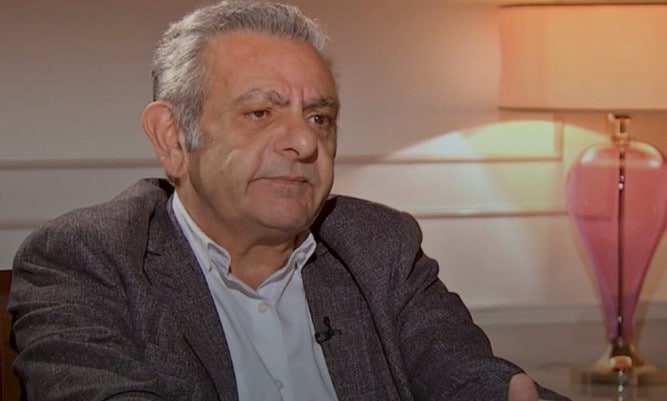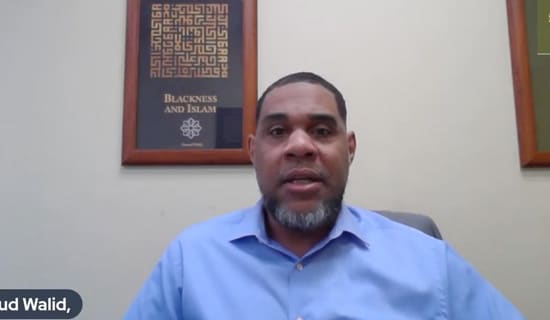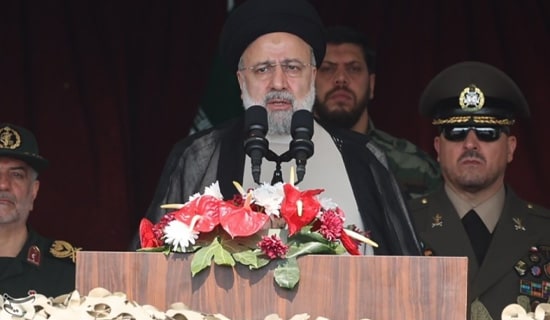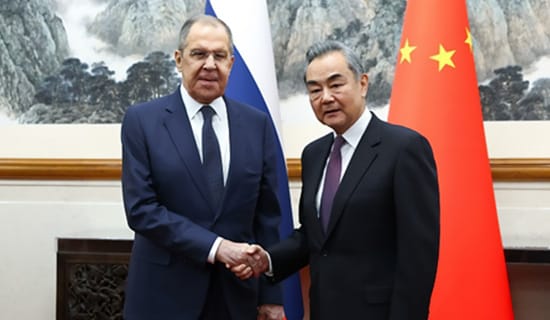In his January 20, 2022 column in the London-based daily Al-Sharq Al-Awsat, Lebanese journalist and political analyst Hazem Saghieh addresses the problematic phenomenon of militant and non-democratic forces taking part in the democratic process. These forces, he points out, participate in the democratic game when it serves them, but have no respect whatsoever for the principles that underpin it. Therefore, if they take part in elections and lose, they often use force and violence to fight the result. And if they win the elections, they immediately take steps to abolish the very democratic institutions that brought them to power.
An example of this, says Saghieh, was provided by the Popular Mobilization Units (PMU), the Iran-backed militias in Iraq, in the October 2021 elections to the Iraqi parliament. After the political factions affiliated with these militias lost the elections, the militias started targeting some of the victorious parliamentary factions with grenades and bombs. Another example is Hizbullah in Lebanon, which has assassinated many politicians from rival factions since 2005, including prime minister Rafiq Al-Hariri, in order to weaken their factions in parliament. The immediate inspiration for both these movements, Saghieh adds, is the Iranian regime, and further examples are the Nazi regime in Germany and the fascist regime in Italy – all of which rose to power by democratic means but then turned their countries into dictatorships.
Saghieh notes that it is important to remember the real nature of these belligerent forces and not to believe them when they pretend to embrace democracy.

Hazem Saghieh (Source: hafryat.com)
The following are excerpts from the article as published in the English-language edition of Al-Shar Al-Awsat, lightly edited for flow.[1]
"A question that often preoccupied political thought: ought non-democrats be allowed to take part in the democratic process? A more glaring question faces countries like Iraq and Lebanon today: Ought armed organizations that can impose their will by force be allowed to take part in the democratic process?
"To start with, let us say that the term 'ought' means little here, as the presence of weapons determines what 'ought to be' and what 'ought not to be.' Those who care about the democratic process and comply with its rules can do nothing about it.
SUPPORT OUR WORK

"Elections were held in Iraq last October, and the results, as we all know, went against the armed factions loyal to Iran. Unrest spread alongside armed parades held in protest of the election results that the losing factions claimed had been rigged. Later, the Independent High Electoral Commission announced the results after looking into the challenges presented against it, which changed very little.
"Thus, the losing factions shifted their strategy, targeting some of the victorious parliamentary blocs, i.e., Taqadom, 'Azm, and the Kurdistan Democratic Party: a hand grenade was thrown at the latter’s headquarters, and two Kurdish-owned banks in Baghdad were bombed. Other bombs have targeted the headquarters of Taqadom and 'Azm in the capital, and an explosive device hit the home and office of Taqadom MP Abdul Karim Abtan.
"That is what has happened so far. What follows could be worse.
"The Lebanese might (?) hold their elections in May. They have had their own experiences that remind them of these developments in Iraq: The assassinations targeting MPs from the March 14 alliance, which were aimed at reducing their parliamentary majority after the assassination of Rafiq Hariri in 2005.
"Giving our 'brothers in nationality' in Lebanon and Iraq the benefit of the doubt would not prevent us from saying that they have little respect for the democracy they are taking part in and the parliaments in which they are represented. Their point of view, here, is simple: when we lose the elections, we do not behave in accordance with the results; rather, we challenge them with all of our strength, undermining their legitimacy. When we win, on the other hand, we render our electoral mandate absolute; nothing can undercut it.
"Of course, Lebanese Hezbollah and the Popular Mobilization Units in Iraq were not the ones to start this school, though they became among its most distinguished graduates. As is well known, the Iranian regime, which is the immediate inspiration for both, has a bizarre system for deceiving democracy. The Ruling Jurisprudent [i.e., the Supreme Leader], who is not elected, is the most powerful figure within the regime: He is the commander of the army and security forces, and he appoints the head of the judiciary, half of the members of the Guardian Council (aka Constitution Council), mosque preachers, and heads of the media outlets and networks; also, his charity institutions, which have a multi-billion-dollar budget, make up a significant chunk of the Iranian economy.
"Nonetheless, the President of the Republic and the Parliamentary Speaker are both elected. As for how they are elected, that is another story: in 2009, the election winners [according to the Iranian opposition], Mir Hossein Mousavi and Mehdi Karroubi, who were part and parcel of this same regime- despite being slightly [different from its other members]- were arrested. In 2020, more than 7,000 reformist and moderate candidates were not allowed to run. The conservatives thus inevitably recorded impressive victories.
"But it may be worth mentioning that it was European totalitarianism, with its leaders and intellectuals, according to their various belief-systems, who laid the groundwork for belittling democracy and parliament: Hitler, who, applying his principle of 'destroying democracy with the weapon of democracy,' came to power in 1933 through elections, considered democracy a 'stupid and filthy path to Bolshevism.'
"In turn, the Italian fascist leader Mussolini found that 'the people do not know what they want. They do not know what is best for them (...) Democracy is beautiful in theory; in practice, it is a fallacy.' Meanwhile, the struggle between fascism and democracy 'does not allow for compromises, it is either us or them.'
"In 1924, the Italian Fascist Party and its allies won a majority in elections brimming with intimidation tactics and violations. However, these elections that brought him to power were the last to be held until 1946 when Italy was liberated. The means Mussolini preferred was that of a putsch, which the fascists had carried out in 1922, calling it the 'March on Rome.' One year later, Hitler’s coup attempt in Munich, unlike its Italian predecessor, was fated to fail. Hitler ended up in prison after that adventure…
"Elections, as far as totalitarians are concerned, could be a useful opportunity to mobilize supporters, incite opponents, access the broader platforms they offer, and achieve an array of other objectives, [but they] are not a means for [bringing] change. [Elections are] a civic, political process, while [the totalitarians'] mindset is military and they see violence as their means for reaching power. And while elections allow us to reveal what is right in the relative sense of rightness, [the totalitarians] already know what is right, regardless of the people’s opinion. Also, while democracy, by definition, recognizes the other and those who are different as partners in a game, they are determined to seize power and make an enemy of the other. In addition, democracy assumes that politics springs from it, and they consider that actual politics - rather, war- lies elsewhere.
"In Lebanon and Iraq, elections were held and others may be held with similarly belligerent forces taking part. They claim to be democratic but despise nothing like they despise democracy. Pretending to believe them might be understandable. The important thing is not to believe them."
[1] English.aawsat.com, January 20, 2022.




